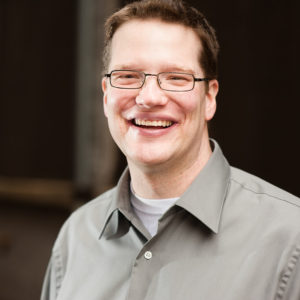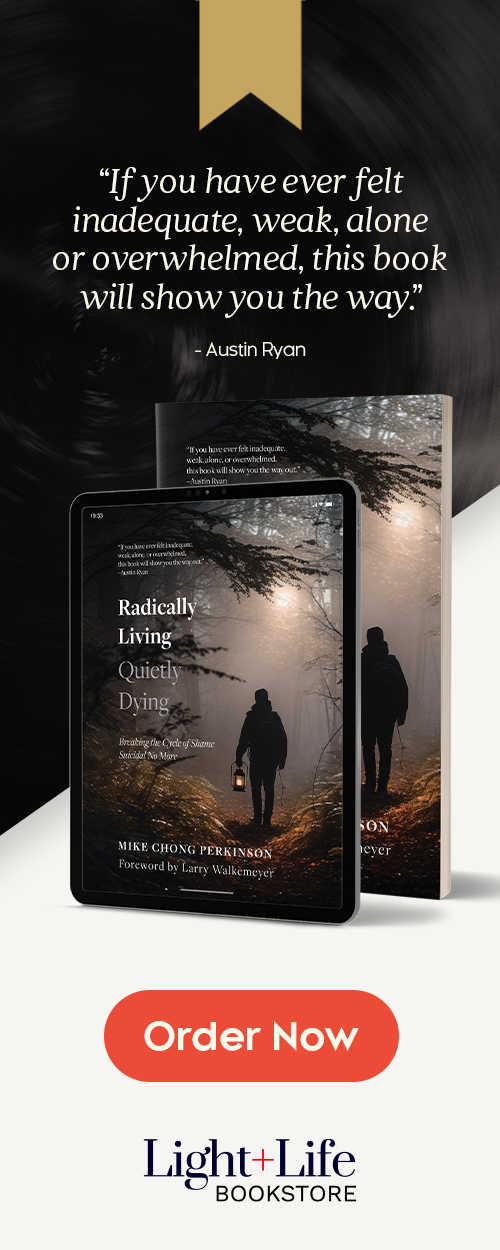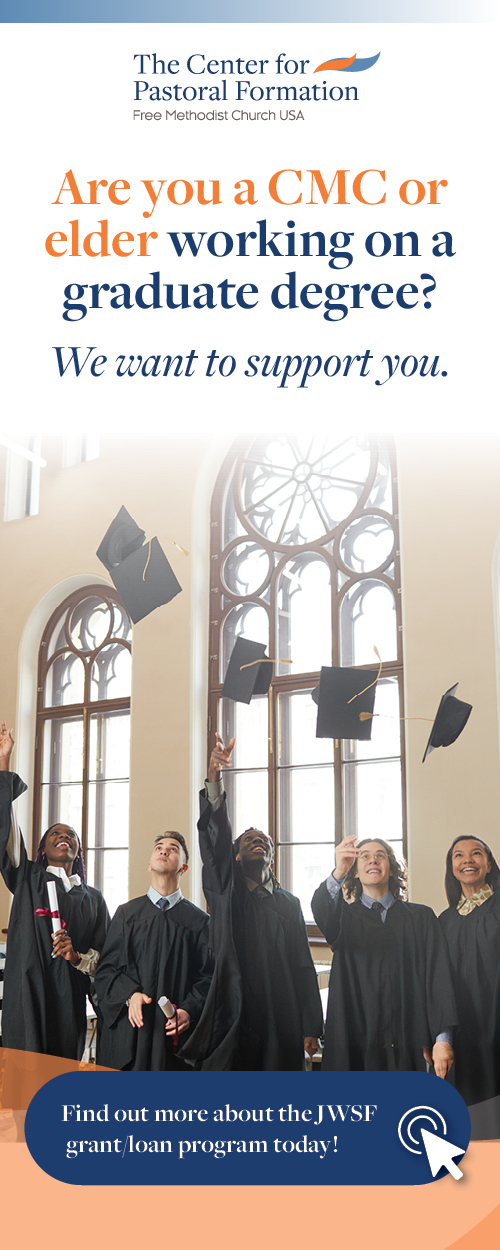
Jeff Finley
Light + Life Executive Editor
Jeff Finley is this magazine’s executive editor. He joined the Light+Life team in 2011 after a dozen years of reporting and editing for Sun-Times Media. He is a member of John Wesley Free Methodist Church where his wife, Jen, serves as the lead pastor.
by Jeff Finley
While many people see challenges on Indianapolis’ West Side, the members of West Morris Church see opportunities for cross-cultural collaboration with community leaders and fellow Christians to help young adults start businesses that will bring new hope and meaningful work to a once-bustling neighborhood.
An Oct. 25 news report from NPR and PBS affiliate WFYI noted, “More than a quarter of West Indianapolis residents are at or below the poverty line, about the same amount have no high school diploma.” The report began with the family history of Councillor Kristin Jones who represents Indianapolis’ District 16 on the City-County Council, the legislative branch of the combined government of Indiana’s capital city and Marion County. The report noted that Jones’ husband was a third-generation General Motors worker who lost his job when the company’s West Indianapolis stamping plant closed 10 years ago, and her great-great-grandparents owned a hardware store decades ago when the area had a thriving business community.
What the public broadcasting report didn’t mention is that Jones attends West Morris Church — a Free Methodist congregation along the city’s West Morris Street in Jones’ district — that is launching Project Lydia with a vision “to help young adults learn business skills, develop a business plan, and start that business.” To hear interviews about the project, listen to Jones and others from West Morris Church on a new episode of “The Light + Life Podcast” hosted by Brett Heintzman.
On the podcast, Jones linked business development and community safety.
“One of the top things that we hear about on the council is public safety. It’s something that’s on the hearts and minds of many residents,” Jones said. “It’s really easy to point fingers, and it’s always somebody else’s fault.”
Jones said the council united one year ago and developed a plan through its Public Safety Committee to use grants to address problems of crime and public safety in each council district. The money was divided equitably, not equally, so that more money went to the areas that need it most. The Indiana University–Purdue University Polis Center oversaw the process so “that way the city of Indianapolis and the councillors had no part in how the money was going to be divided up.”
The Polis Center used multiple metrics (including education, crime and poverty) to evaluate the needs of the 25 council districts.
“We actually were ranked No. 2 to get the highest amount of money based on those metrics,” said Jones, who added that councillors were then given the task of using the data and meeting with residents to determine the priorities for their districts’ grants. “I determined that it would be education, youth, workforce development, and drug prevention, so anybody that would apply for that grant funding had to hit one of those criteria.”
Jones said that although West Indianapolis does not have a high rate of violent crime, drug crimes and robberies resulted in the high ranking for District 16. She decided that addressing the roots of these problems could prevent crime, and she let West Morris know about the grant program.
“I believe the churches are the backbone of our district and our city,” said Jones, who added that as councillors were being trained about the grant program, her first question was whether churches could apply. “I wanted to make sure our churches would be able to be involved in this. I felt that was very important. They are the heartbeats of our community.”
The council president assured her that churches would be able to apply. Jones also learned that if a community center or church serves people from two council districts, it could apply for funding from both districts.
Engaging the Community
West Morris Senior Pastor Kristen Marble said that she initially received a text in January from Jones informing her about the opportunity.
“I just cried when I got it because for the last four years, we’ve been working really hard to try to engage our community and make an impact. We often talk about being about the people who aren’t in our walls rather than the ones who are,” said Marble, who added that the opportunity “was some confirmation that we were headed in the right direction and that we were making an impact and have the opportunity to make a bigger impact.”
West Morris recently considered and restated the congregation’s mission, vision and values.
“Our vision that we developed this summer specifically says that we want to be about helping partner in order to cultivate flourishing,” Marble said. “We had already said we want to be about impacting the community in positive ways, and we’re really trying to be open about what that might look like and to be about thinking outside of the box.”
The board rallied around the idea of applying for the grant, but church leaders realized they needed a team of people in place to make a proposal a reality. Church members were invited to join a group to consider ideas and pray, and they met four times during one month. Marble explained, “It was really brainstorming and praying and looking through the parameters of the grant and just saying, ‘What realistically might we be about and what might we do that would have an impact in the community and might be something we could actually take on?’”
Group members brought a lot of ideas to the table.
“As we were talking from meeting to meeting, people had their projects or their ideas that they were really passionate about. When we decided to go with the microbusiness opportunity and the mentoring piece, it tied a lot of those together,” said Rachel Mohlman, a local ministerial candidate. “Some of our folks are really interested in microgrants and just giving people that opportunity to see what they can do and to dream about what they wanted. We were obviously really focused on youth and young adults. Knowing that we can make a difference and bringing more people into their lives that are positive and that want to support them can really help their journey.”
After applying for a grant of $8,210 ($6,000 designated directly for the young adults staring businesses), the West Morris team didn’t hear anything for nearly two months. Team members became concerned when several days passed after the date when grant winners were supposed to be announced. West Morris eventually received a response to its application.
“We actually were not only awarded the grant, we were given $11,500 when we had only asked for $8,210,” Marble said. “The district right next door apparently decided to fund our grant as well.”
After submitting their business development plans, the young adults (ages 18–25) will apply for $500 start-up fund grants to get their businesses going.
“A lot of times, there are great ideas and great initiative and motivation, but there is a barrier that has to be overcome to start a business,” Marble said. “The grant is noncompetitive. They’re not competing against each other. There are grant funds for every single person who goes through the six-week training course and develops a business development plan.”
Louada Mingous, a Free Methodist elder with family roots in the neighborhood, said Project Lydia “is something that is very needed.” She joined the project’s team because of seeing the “opportunity to help people who were younger trying to get started, trying to get their lives in order.”
Mingous, who also has a social work degree and experience working with the homeless, said one contributor to neighborhood crime “is when people are indigent (or they are hooked on drugs or alcohol). … If we can provide a way for them to have a microbusiness of their own that would support them so they don’t have to be indigent and cannot only help themselves but help their families, I think that’s one way to reduce some of the crime that seems to go on in our neighborhood.”
West Morris initially budgeted for 12 young adults to each receive a microgrant for their business, but, because of the extra money, 15 young adults can now receive a microgrant.
“West Indianapolis is a food desert,” Marble said. “It’s also a desert in a lot of other areas in terms of economic development, so we’re just excited about what this opportunity of having new businesses in the area is going to do for the entire community.”
Classes will be held for three weeks in November and three weeks in December. The young adults (referred to as “innovators” by Project Lydia team members) will be given a choice of attending Monday or Saturday classes to allow flexibility. A meal will precede each two-hour class. Child care will be provided, and bus tickets or gas cards will be available to help with transportation needs.
“Within the classes, we are going to have instructors who can talk to them about soft skills, communication and how that plays into the business role, putting together a budget for the business plan, and then even a budget to think about: ‘How does this factor in when you start launching your business, and how do you continue that budget?’” Mohlman said. “All of those things are necessary skills, but we also want the mentors to support them within the class and then to support them in writing the business plan and the grant proposal.”
As a mentor assists an innovator, Mohlman said, “we hope that supportive relationship will grow and flourish in its own way through the six weeks and as they launch their businesses.”
What’s in a Name?
At one brainstorming session, Marble shared a devotional message that inspired West Morris member Jackie Mueller to suggest the Project Lydia name as a temporary name.
“We read about Lydia in the Bible [Acts 16:11–15] who was a dealer in purple cloth, and purple is the most expensive of the dyes to create, which is why it is the color for royalty,” Mueller said. “We just started talking about in this very small passage, what do we know? We know she’s a businesswoman, and we know that she’s doing well for herself.”
The team members eventually decided Project Lydia should remain the name. Mueller believes the young entrepreneurs will not be the only people helped by the project.
“There are times when you think God is directing you to go and do something to help someone else when, in reality, He’s directing you to someplace you’re going to get help,” Mueller said. “I think that will also be the case for our mentors. It’s going to help them grow as well. They’re not just going to be a mentor. They’re going to also be a beneficiary of this program, in my mind, because it’s going to grow their hearts as well.”
Kingdom Cooperation
West Morris welcomes several other congregations into its spacious building. The Project Lydia team includes Pastor Delores Franklin of Salvation and Praise Worship Center that meets in the West Morris building. Franklin also provides Christian counseling from a West Morris office.
“We didn’t want to just be landlords. We wanted to be ministry partners, and so as they’ve come in, we’ve increasingly worked together with them about different things,” said Marble, who added that Franklin “has brought a lot of life and vitality to this group.”
“I do work with people with drug addiction and grief and loss,” said Franklin who added that because most of her counseling clients for drug addiction are young adults, “I thought that this would be the greatest thing to do as far as getting them redirected and giving them an opportunity to rethink and reimagine their lives in doing something different, so I got excited.”
Franklin said she has been sharing about Project Lydia with local high schools and other churches and community residents.
Changing Lives
Word has spread quickly. At this article’s deadline, only four innovator spots remained open as applicants expressed gratitude and excitement for Project Lydia’s launch.
Kayla, who wants to start a bakery, said, “I’m very eager for Project Lydia. I’ve been praying and asking God to help light a way for me to learn and dive into maintaining a business and creating a successful business plan, and He brought me back to you guys!”
Jayla, who wants to start a beauty business, said, “As an African-American, we struggle in our communities, and it seems like we never get that happy ending. I think this can benefit my community because it gives hope and a chance.”
Councillor Jones told the West Morris volunteers that she envisions “a church service maybe a year or a year and a half from now when somebody gets up and gives their testimony about this program and what this seed that you are planting will have done for them.”
“The councillors had no impact on who won, but I was definitely praying for the right applicants to make sure those funds got in the right hands, and I truly believe that they did,” Jones said. “I am so eternally grateful — just humbled that Pastor Kristen and the church were willing to do this. … They are willing to invest in this program and these wonderful human beings that are willing to be these applicants.”
West Morris and a nearby community center are both grant recipients for the area.
“This injection of investment for a small community, it can really change. … We won’t have the data back for a while to see if it works, but I truly believe that this is where it starts,” Jones said. “A lot of people just feel helpless, so they might take a different turn in life. This can really change their life.”
+

Jeff Finley
Light + Life Executive Editor
Jeff Finley is this magazine’s executive editor. He joined the Light+Life team in 2011 after a dozen years of reporting and editing for Sun-Times Media. He is a member of John Wesley Free Methodist Church where his wife, Jen, serves as the lead pastor.











